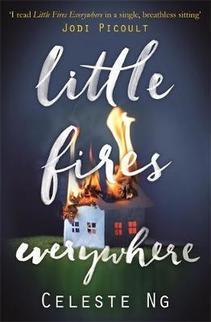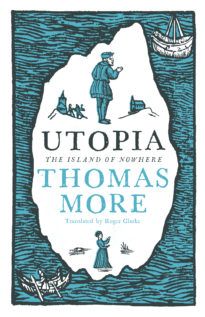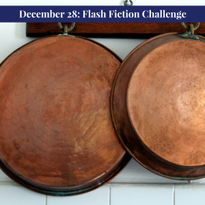Little Fires Everywhere by Celeste Ng
Keen to assist the deserving poor, Elena offers Mia a part-time cooking and cleaning job in lieu of rent. She’s already welcomed Pearl into the family home to pick apart Jerry Springer in the TV room with the Richardson kids. It makes perfect sense that Pearl should want to hang out in the more opulent setting; what Elena doesn’t envisage is that her children, especially Izzy, the family scapegoat, should be drawn to Mia’s unconventional lifestyle and inner calm.
But the greatest insult to Elena’s sense of order comes from Mia’s role in a custody battle concerning a Chinese-American baby in the process of being adopted by her dearest friends. When the baby’s mother makes an impassioned plea for her to be returned to her, the community’s liberal attitudes are put to the test. Elena’s support for the adoptive mother leads her to do some digging around into Mia’s past. Even as she fights for what she holds dear, Elena risks losing the very thing she didn’t realise she had.
Cleverly crafted, and moving smoothly between the perspectives of multiple characters, Celeste Ng’s second novel is an engaging and thought-provoking tale of race, motherhood and the myth of a perfect world. Thanks to Little, Brown for my advance proof copy. For my views on the author’s debut, see The great unsaid. For a historical perspective on Chinese-American identity, see my review of The Fortunes.
Utopia: The Island of Nowhere by Thomas More in a new translation by Roger Clarke
For this reader, familiar with the term utopia, but never having read the book, there were some surprises: such as a belief in a supreme being considered consistent with rationality and the island nation’s reliance on slaves. However, both of these would be considered progressive in the context of the times. As outlined in Book I, the freedom to choose which religion (or none if one keeps quiet about it) is an advancement on being slaughtered for choosing the wrong branch of Christianity as occurred in England around that time; while slavery might be preferable to the death penalty for the pauper who steals a chunk of bread. Given the position of women 500 years on, I’m not going to squabble about Utopian women working alongside, but subservient to, men.
I’m not much of a philosopher, or reader of non-fiction of any kind, but I found this an easy read in Roger Clarke’s 2017 translation. The humour came as a great surprise: minerals being valued solely for their function, gold and silver (a necessity for trade) was used for chamber pots and jewels for children’s toys. Although I didn’t read all of it, I’d appreciated the additional material, including the influences on Thomas More, in the edition I read (although unfortunately in tiny font) courtesy of Alma Books.
| Can I link either of these books to a 99-word story on the theme of copper country? It seems I can, but only by being a little silly! |
Coppers bring copper to Utopia
The visitors try to impress us, as usual. We stifle our yawns. They tell us they’re coppers, but we can police ourselves. He empties his pockets of a handful of coins and a card. “Electronic money. No need for coppers.” We hate to disappoint him, but we’ve no need for money at all. “Look how it turns from orange to green as it loses its shine!” But we’re not impressed by decoration. “Don’t touch it! It’s dirty.” The coppers disagree. “Copper kills bacteria and viruses.” Really? We took a sack and in exchange for a lorry load of gold.
























 RSS Feed
RSS Feed





















